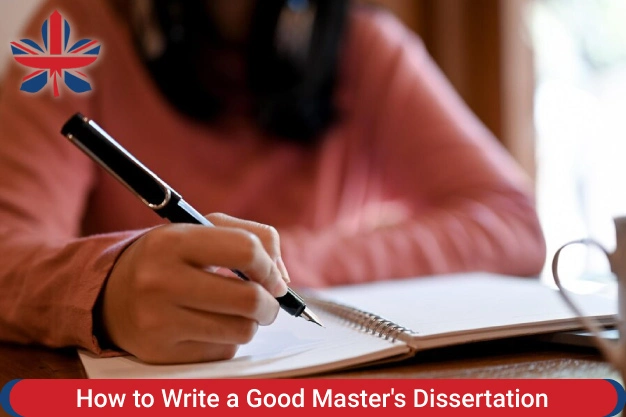A master’s degree is a higher education credential awarded to postgraduate students who, through appropriate education and/or training, have developed expertise in their fields of study or professional practice. A master’s degree holder has a variety of professional options, including teaching and research.
The master’s dissertation is the research project that students must submit toward the end of their academic program in order to receive their master’s degree. A master’s dissertation, often known as a thesis, is a substantial academic work that presents the student’s dissertation as evidence of the knowledge acquired and abilities learned by them.
A dissertation not only helps you earn your master’s degree, but it also establishes your academic standing in both your academic and professional lives. A dissertation becomes a lifelong asset in terms of intellectual property and is included on your resume and CV.
Therefore, it is obvious that a dissertation requires a lot of time, effort, expertise, and experience given its importance in both the short and long terms. Students who are given the burden of writing a dissertation for the first time may feel completely lost. Therefore, if you are a student pursuing a master’s degree in any field and are having trouble understanding how to write a dissertation, we can assist you. Our company, British Dissertation Help, offers writing aid, and all of our academic writers have years and years of experience producing academic papers, including dissertations. Our experts have provided some Master Dissertation Tips that will assist you in writing your dissertation more effectively in this article:
- Understand the guidelines: Every educational institution requires its pupils to follow a specific set of guidelines when composing an academic paper. Now, understanding and implementing these guidelines may be exceedingly difficult. So before you start writing your dissertation, be sure to read the guidelines and comprehend them in their entirety. You can always speak to your mentor or guide if you need assistance with these requirements.
- Select a research topic: You should choose a dissertation topic that you can handle while also finding fascinating. You can start with broad areas of research to choose your dissertation’s topic, then narrow it down to something more concentrated, useful, and achievable. The research will be more streamlined, the analysis and arguments more focused, and the arguments will be more articulate when your topic is more concise. To ensure that your dissertation is useful, you must also ensure that the subject is sufficiently deep to warrant research and that it is pertinent to the current situation.
- Make a schedule: As soon as you can, you should begin working on your dissertation. However, you can’t give your dissertation all of your time. You must create a schedule for yourself in order to know how to divide your day, how many hours to devote to your dissertation, and possibly what to work on during which hour. The schedule only needs to serve as a reminder of the tasks you need to complete and when, not as a strict regimen. Being organized will enable you to complete your dissertation, prepare for your examinations, go to regular lessons, and handle other errands.
- From the outline of your dissertation: For your dissertation, create an outline. You must decide how to write your dissertation at this point. This phase is crucial because it allows you to determine the kind of data, such as quantitative or qualitative, primary or secondary, etc., that you will need for your dissertation as well as the quantity of data that will be needed.
- Figure out the research methodology: Research methodology describes the processes and methods used to essentially gather and analyze data. Determine the methodology, that is, the procedures and techniques you will use to acquire the data before you actually begin the data collection process.
- Make the most of the technology: Make the most of the available technologies as soon as you begin the data collection process to make your work quicker and easier. You can create virtual focus groups using social media sites, or you can distribute your questionnaire online and have random individuals fill it out for you to create a random survey. Telephones can also be used to conduct telephonic interviews. In addition, you can access solution libraries, which are digital archives with a wealth of data.
- Consider taking help: You can get Master’s Dissertation Help from one of the reliable dissertation writing services if things become too much for you to handle, you have too much on your plate, or you feel that some of the tasks involved in writing a dissertation are too difficult for you to complete correctly or too time-consuming for you to devote to them. You will undoubtedly benefit greatly from the expertise of professional academic writers who have years of experience. When used appropriately, these services can help you save a lot of time while still granting you complete control over your academic work.
So, these were some expert tips that will make writing your master’s dissertation easier.

